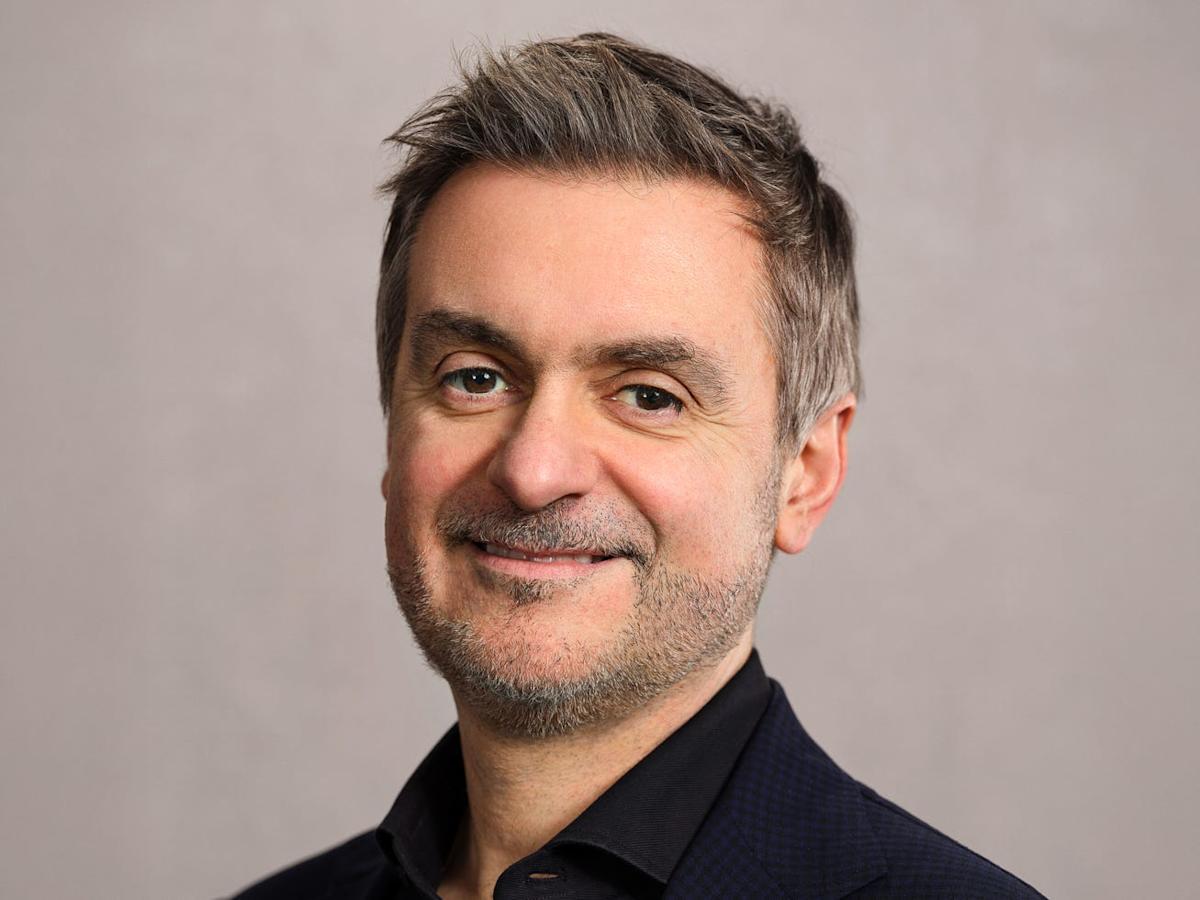-
Marco Argenti is Goldman’s chief information officer, responsible for the bank’s AI rollout.
-
In an interview, he addressed how his 12,000 engineers are being impacted by the tech.
-
He also shared how he sees it boosting careers and productivity.
Part-time rocker. Part-time philosopher. Full-time tech boss. Meet Marco Argenti, the executive at the helm of Goldman’s push into artificial intelligence.
Argenti is Goldman Sachs’ chief information officer, but his interests stretch beyond finance. Before joining Goldman in 2019, he was a top Amazon executive, helping build out its cloud-computing business. He also plays in a Seattle rock band and has long been fascinated by philosophy — particularly the ways technology can shape people and their decisions.
That perspective has helped shape his view of AI. At Goldman, Argenti oversees a 12,000-person engineering team — one of the largest on Wall Street — and has helped lead the bank’s push into artificial intelligence, including the rollout of its internal generative AI platform, GSAI Assistant. Argenti sees AI as a tool that will not just boost productivity, but also redefine career paths and even save lives.
In a recent interview with Business Insider, Argenti shared his view of AI’s potential to impact his engineers, Wall Street, and the world — starting by helping more people learn to be a boss by managing machines before managing people.
Below is our conversation with Argenti, edited for length and clarity.
Goldman has a workforce of roughly 12,000 coders reporting to you. What do different groups do, and how is their work being impacted by AI?
There are several ways to slice it.
We have developers sitting in the business units. Developers working on our trading stack; developers working on our private wealth advisory website; or developers working on our Marquee platform for institutional and corporate clients for example.
Then there is a central group — over 3,000 people — that sit in what we call Core Engineering. Those people are creating the common platforms used across the firm, like data centers and cloud, networking, storage, middleware, and then higher-order services such as identity and access management, APIs.
We were one of the first firms to establish an interesting profession within engineering called strats. They’re similar to quant developers, but they’re also coders, and they write code specific to, let’s say, risk or pricing models. We have over 2,000 of those. Those people are unique because today they’re also morphing more and more into data science.
-
Marco Argenti is Goldman’s chief information officer, responsible for the bank’s AI rollout.
-
In an interview, he addressed how his 12,000 engineers are being impacted by the tech.
-
He also shared how he sees it boosting careers and productivity.
Part-time rocker. Part-time philosopher. Full-time tech boss. Meet Marco Argenti, the executive at the helm of Goldman’s push into artificial intelligence.
Argenti is Goldman Sachs’ chief information officer, but his interests stretch beyond finance. Before joining Goldman in 2019, he was a top Amazon executive, helping build out its cloud-computing business. He also plays in a Seattle rock band and has long been fascinated by philosophy — particularly the ways technology can shape people and their decisions.
That perspective has helped shape his view of AI. At Goldman, Argenti oversees a 12,000-person engineering team — one of the largest on Wall Street — and has helped lead the bank’s push into artificial intelligence, including the rollout of its internal generative AI platform, GSAI Assistant. Argenti sees AI as a tool that will not just boost productivity, but also redefine career paths and even save lives.
In a recent interview with Business Insider, Argenti shared his view of AI’s potential to impact his engineers, Wall Street, and the world — starting by helping more people learn to be a boss by managing machines before managing people.
Below is our conversation with Argenti, edited for length and clarity.
Goldman has a workforce of roughly 12,000 coders reporting to you. What do different groups do, and how is their work being impacted by AI?
There are several ways to slice it.
We have developers sitting in the business units. Developers working on our trading stack; developers working on our private wealth advisory website; or developers working on our Marquee platform for institutional and corporate clients for example.
Then there is a central group — over 3,000 people — that sit in what we call Core Engineering. Those people are creating the common platforms used across the firm, like data centers and cloud, networking, storage, middleware, and then higher-order services such as identity and access management, APIs.
We were one of the first firms to establish an interesting profession within engineering called strats. They’re similar to quant developers, but they’re also coders, and they write code specific to, let’s say, risk or pricing models. We have over 2,000 of those. Those people are unique because today they’re also morphing more and more into data science.










Leave feedback about this